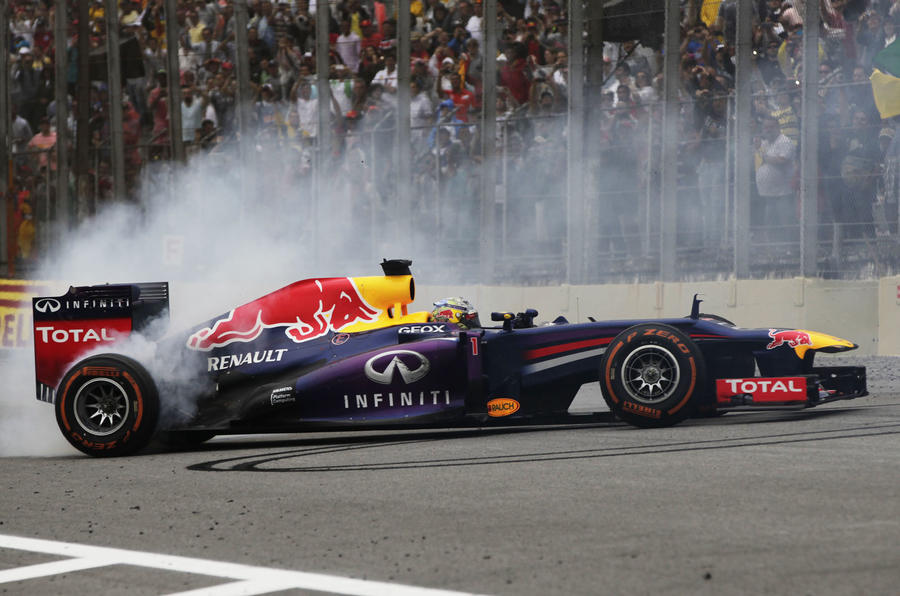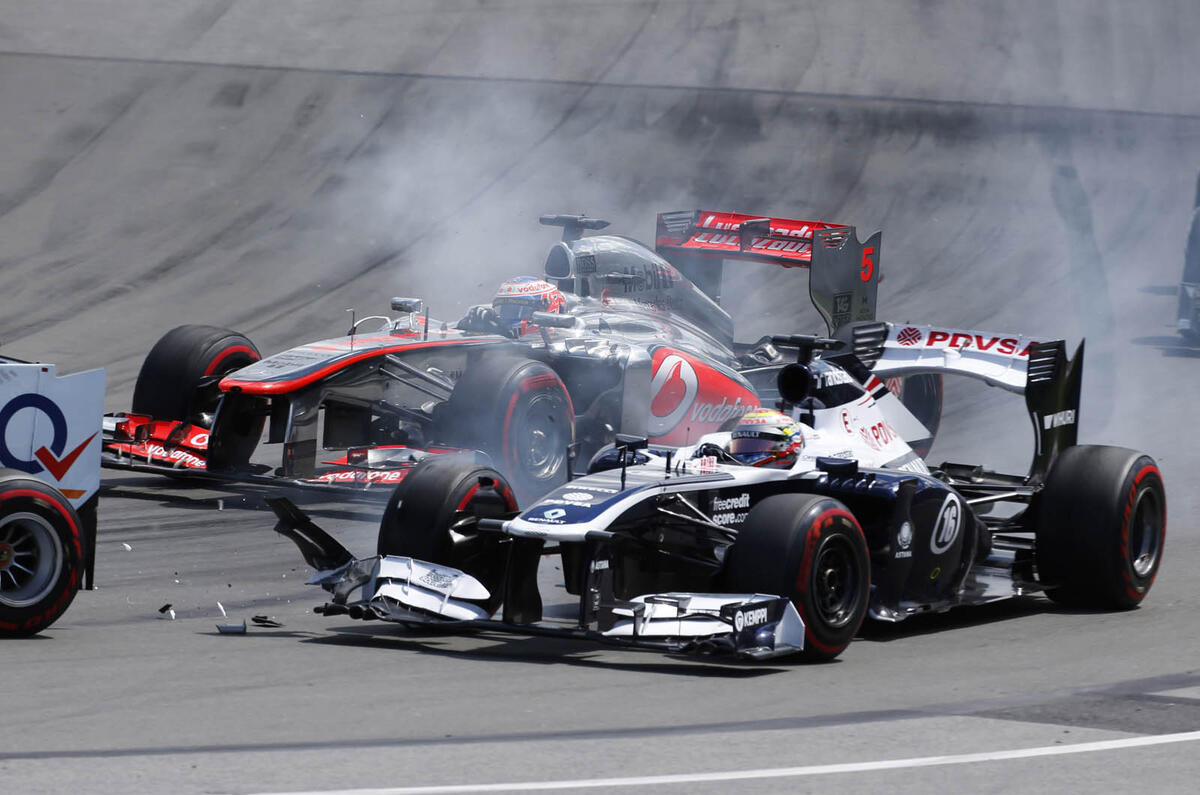If Sebastian Vettel ever decides to retire from Formula 1, he has a good chance of a career as a stand-up comedian.
At the Autosport Awards in December, he got up on stage and did a very funny impersonation of FIA president Jean Todt telling him off for doing doughnuts after winning races. He also treated the audience to a conversation with Red Bull Racing boss Helmut Marko berating him for not doing a good enough job.
This was all an interesting illustration of the way things are at the moment. Formula 1 is all work and no play, but showing emotion at the end of a race is something that drivers like to do and the fans love to see. A car going round in smoky circles, or a driver taking off his helmet and driving around waving, goes down well with the crowd. The first time Vettel did doughnuts, the team was punished for not insisting that the driver returned the car to parc ferme. After that he did his doughnuts in safe places – off the race track – and then drove the car to parc ferme, thereby avoiding punishment.
While I understand the idea of avoiding drivers getting hurt in silly post-race incidents while they celebrate, it isn’t sensible to stop them from putting on a show for the fans. The sport needs that. If one looks across the Atlantic at US racing, the stars of Nascar are always burning the rubber off their tyres and performing for the fans. It is part of the sport – and it should be in F1 as well, even if that means the FIA has to insist on circuits building a safe ‘doughnut zone’ somewhere out there on the race track.
Vettel is an engaging and intelligent individual. He is a fun guy and now he is confident enough not to listen too much to what the PR people tell him. Too many of today’s F1 drivers are scared of their own shadows and never say anything controversial or even amusing for fear of upsetting the team or the sponsors. The levels of control have become absurd and include the recording of interviews by the PR people, just to make sure that what the driver said is what gets reported. The effect, of course, is that the drivers say nothing that will get them into trouble.
This is all a very real problem, because sport is all about emotion and the most successful sports are those that create the strongest emotions. People love to see great comebacks and close finishes. Are there any F1 fans who will forget the showdown in Brazil in 2008, with Felipe Massa winning the title when he crossed the finish line and then losing it as Lewis Hamilton scrambled past enough cars to grab back the title on the very last lap of the race, just a couple of corners from home? We may not remember all of the details of the race, but we all remember Massa’s dignity in defeat and Hamilton’s joy at winning what was the ultimate showdown. Thirty years from now, they will be making films about that one.





















































Add your comment